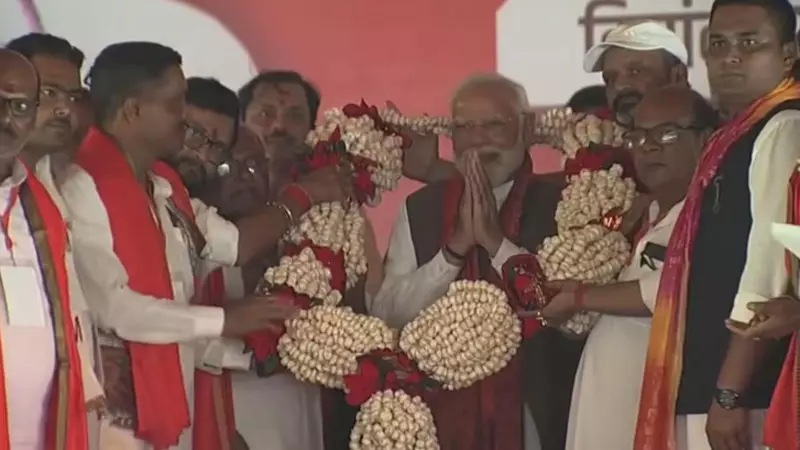
The political temperature in Bihar soared dramatically as Union Home Minister Amit Shah launched a blistering campaign offensive, setting the stage for what promises to be one of the most fiercely contested state elections in recent history.
Shah's Strategic Counterattack
Addressing a massive rally in Bihar, Amit Shah delivered a powerful rebuttal to the opposition's narrative, particularly targeting RJD leader Tejashwi Yadav's focus on unemployment. "The BJP government has created millions of jobs nationwide," Shah declared, presenting data to counter the opposition's claims about job scarcity.
The Home Minister didn't hold back in his criticism of the RJD's governance record, reminding voters of what he termed "the jungle raj years" under previous administrations. His speech strategically blended development promises with sharp political messaging, indicating the BJP's multi-pronged approach to the Bihar contest.
Tejashwi's Development Gambit
Not to be outdone, Tejashwi Yadav has been campaigning aggressively across the state, positioning himself as the champion of Bihar's youth and unemployed. The RJD leader has been highlighting his "10 lakh jobs promise" from the previous election cycle, while adding new welfare measures to his current manifesto.
Political analysts note that Yadav's continued focus on employment and development represents a significant shift from traditional caste-based politics that has long dominated Bihar's political landscape.
The '400-Paar' Factor
One of the most interesting developments has been the adaptation of the BJP's national "400-paar" slogan for the state context. Shah confidently predicted that the NDA would cross the 400-seat mark in Bihar's 243-member assembly, a claim that immediately drew counter-attacks from opposition camps.
Congress leaders and RJD representatives have dismissed this projection as "political posturing" and "election rhetoric", setting the stage for a numbers war that will likely intensify as election day approaches.
Nitish Kumar's Calculated Silence
Meanwhile, Chief Minister Nitish Kumar has maintained a relatively low profile, allowing national leaders to drive the initial campaign phase. This strategic positioning suggests the JD(U) may be conserving its firepower for the crucial final weeks of campaigning.
The Bihar election is shaping up to be a referendum on both state and national governance, with employment, development, and law and order emerging as key battleground issues. With political heavyweights from all parties descending on the state, voters can expect an intense campaign season filled with dramatic announcements and counter-accusations.
As the election machinery kicks into high gear, all eyes remain on Bihar, where the outcome could have significant implications for national politics and the 2024 general election landscape.






